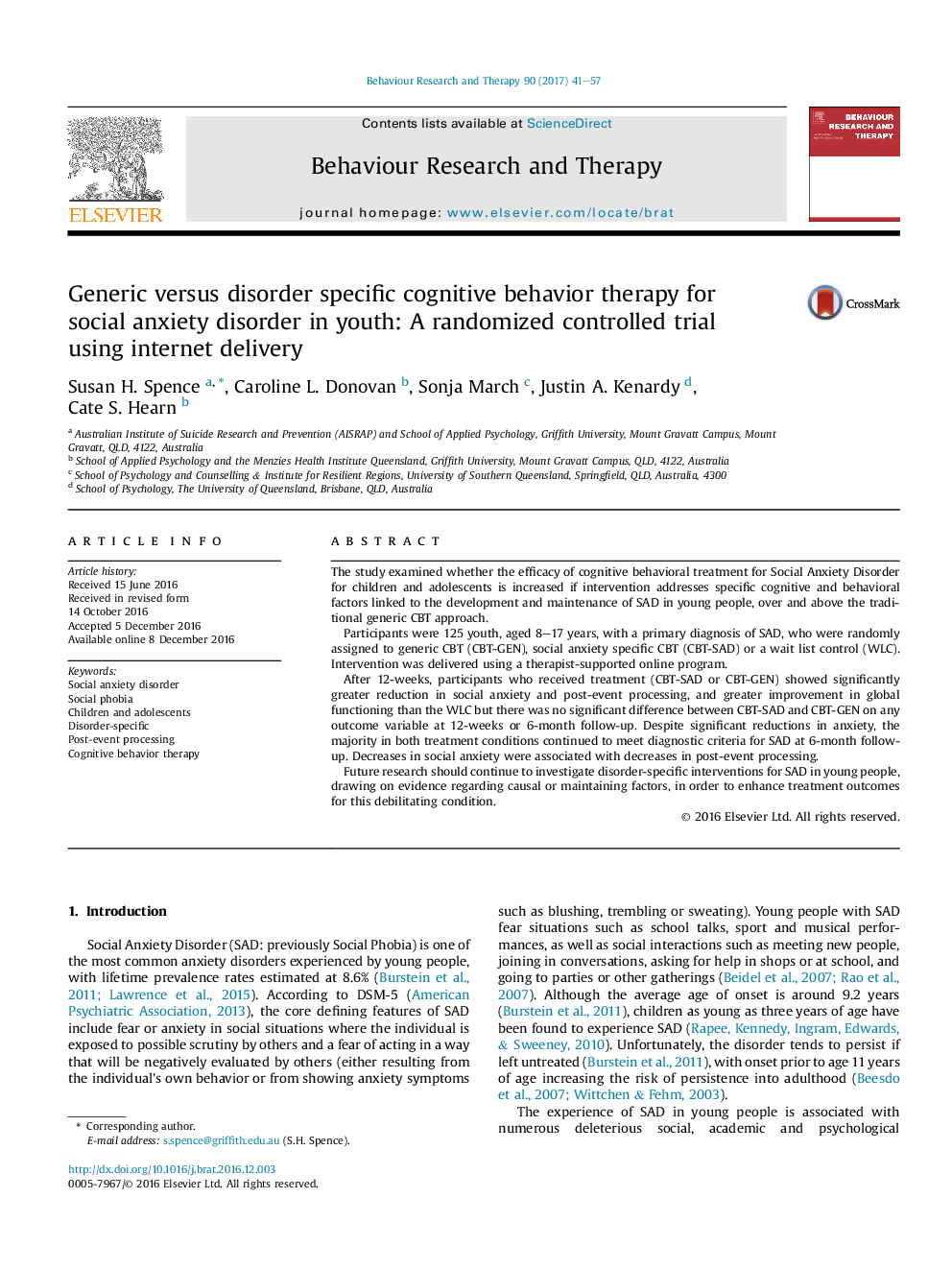| کد مقاله | کد نشریه | سال انتشار | مقاله انگلیسی | نسخه تمام متن |
|---|---|---|---|---|
| 5038269 | 1472759 | 2017 | 17 صفحه PDF | دانلود رایگان |

- Generic and disorder-specific, internet-delivered, CBT for youth SAD reduced social anxiety more than a wait list control.
- Generic and disorder-specific CBT for youth SAD had equivalent treatment effects.
- Despite significant improvements, the majority of youth in both conditions continued to meet diagnostic criteria for SAD.
- The results are consistent with other studies showing the challenges of treating SAD in young people.
- Post-event processing mediated changes in social anxiety suggesting it may be an underlying mechanism of change.
The study examined whether the efficacy of cognitive behavioral treatment for Social Anxiety Disorder for children and adolescents is increased if intervention addresses specific cognitive and behavioral factors linked to the development and maintenance of SAD in young people, over and above the traditional generic CBT approach.Participants were 125 youth, aged 8-17 years, with a primary diagnosis of SAD, who were randomly assigned to generic CBT (CBT-GEN), social anxiety specific CBT (CBT-SAD) or a wait list control (WLC). Intervention was delivered using a therapist-supported online program.After 12-weeks, participants who received treatment (CBT-SAD or CBT-GEN) showed significantly greater reduction in social anxiety and post-event processing, and greater improvement in global functioning than the WLC but there was no significant difference between CBT-SAD and CBT-GEN on any outcome variable at 12-weeks or 6-month follow-up. Despite significant reductions in anxiety, the majority in both treatment conditions continued to meet diagnostic criteria for SAD at 6-month follow-up. Decreases in social anxiety were associated with decreases in post-event processing.Future research should continue to investigate disorder-specific interventions for SAD in young people, drawing on evidence regarding causal or maintaining factors, in order to enhance treatment outcomes for this debilitating condition.
Journal: Behaviour Research and Therapy - Volume 90, March 2017, Pages 41-57